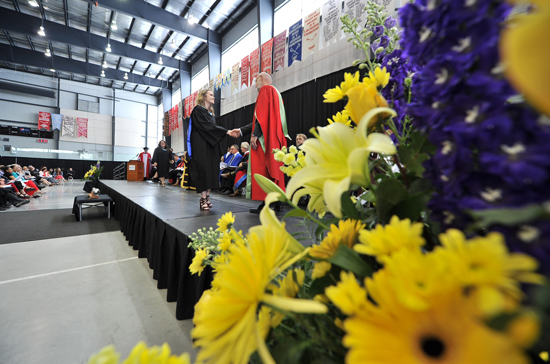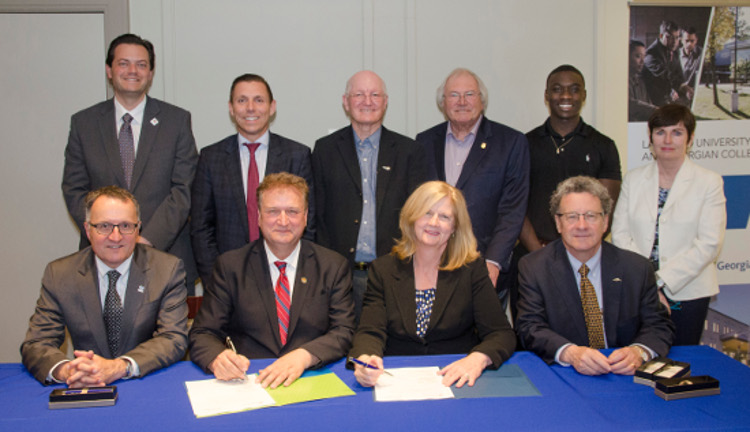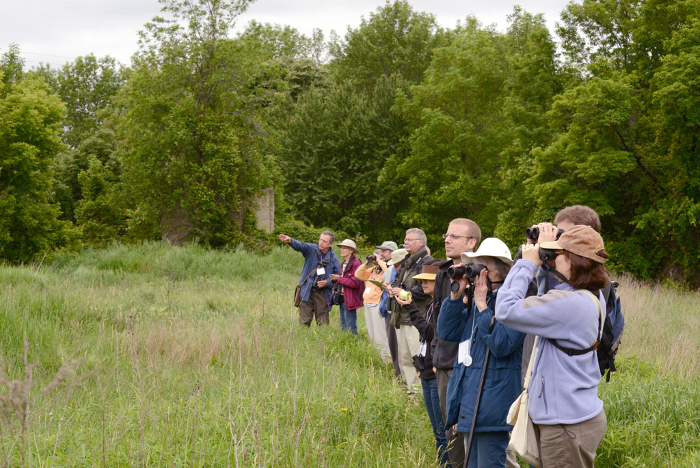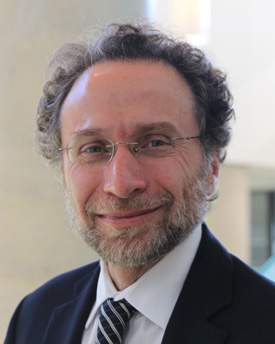April 26, 2017 – Thunder Bay, ON
Lakehead University will recognize five exceptional people at this year’s three Convocation ceremonies on Friday, June 2 and Saturday, June 3 at the Thunder Bay Community Auditorium.
Kevin Page, Bob Dhillon, and Rudolf Wahl will each receive an honorary degree for their remarkable achievements.
“These individuals are being recognized for their exceptional accomplishments in public service, business, and mining,” said Dr. Brian Stevenson, Lakehead’s President and Vice-Chancellor. “Convocation is not only a time to celebrate what our students have achieved, but the contributions of special members of our community, as well.”
Lakehead will also honor the dedication of Dr. Inderjit Nirdosh and Dr. James Franklin, who will each be named Fellow of the University.
David Tamblyn, Chair of Lakehead’s Board of Governors, explained that this year’s Fellows were selected because of the many ways in which they have given back to the University community.
“For years, Lakehead students have benefitted from Dr. Nirdosh and Dr. Franklin in their roles as professors, through their fundraising and personal contributions, and by volunteering their time,” Tamblyn said. “These are the qualities we recognize and honour by naming them Fellows of the University.”
As announced in early March, former Ontario Liberal Party Leader and past Chair of Confederation College’s Board of Governors Lyn McLeod will be formally installed as Lakehead’s ninth Chancellor on Friday, June 2, at the first of the University’s three Thunder Bay campus convocation ceremonies.
Honorary Degree Recipients
Kevin Page
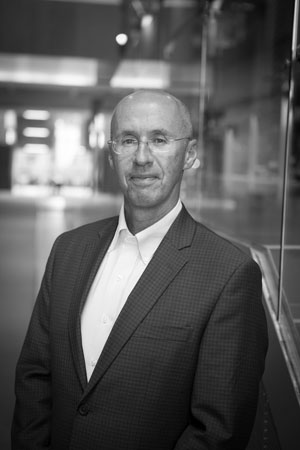
Kevin Page is the current Chief Executive Officer of the new Institute of Fiscal Studies and Democracy at the University of Ottawa.
Prior to this position, he was the Jean-Luc Pepin Research Chair in the Faculty of Social Sciences at the University of Ottawa from 2013 to 2016.
Page was Canada's first Parliamentary Budget Officer from 2008 to 2013.
He has 27 years of experience in the federal public service with most of that time spent at three central agencies responsible for budgeting, including the Department of Finance, the Treasury Board Secretariat and the Privy Council Office.
Kevin was the Assistant Secretary to Cabinet for Macroeconomic Policy before becoming Canada's Parliamentary Budget Officer.
He has a Master's degree in Economics from Queen's University and an Honours Bachelor of Arts in Economics from Lakehead University. Born in Fort William (Thunder Bay), Ont., Kevin is married and a father of three children.
Page will receive an Honorary Doctor of Laws on Friday, June 2 at 2 pm.
Bob Dhillon
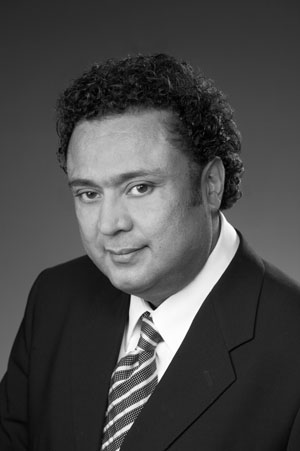
Bob Dhillon is the President and CEO of Mainstreet Equity Corp., as well as the founder and largest shareholder. Mainstreet (TSX: MEQ) has achieved a 1,270% total return on investment from Sept 2013 - Sept 2014, making it Canada’s highest performance real estate company.
Mainstreet’s assets are valued at over $1.5 billion, consisting of more than 10,000 apartment units in Western Canada, and growing.
He has directly supported Lakehead University’s international outreach to India. He was also instrumental in helping Lakehead University’s Faculty of Business Administration develop connections within India.
Dhillon currently sits on the Canadian Mortgage and Housing Corporation (CMHC) Board, the biggest Canadian Crown corporation, and he is the Honorary Consul General for Belize in Canada.
He owns a private island in Belize that he is developing into a world-class tourist resort. Dhillon is also the author of the book Business and Retirement Guide to Belize and he ownsNational Payments, a Visa and MasterCard-approved Merchant Processing business involved with the financial services industry.
Some of Dhillon’s notable achievements include: Recipient of the Sikh Awards (London, UK) 2016 Business Man of the Year, recipient of the India Association of Manitoba and University of Winnipeg 2016 Lifetime Achievement Award, and recipient of the Ernst and Young 2015 Entrepreneur of the Year for the Prairies Real Estate and Construction category.
Dhillon will receive an Honorary Doctor of Commerce on Saturday, June 3 at 9:30 am.
Rudolf Wahl
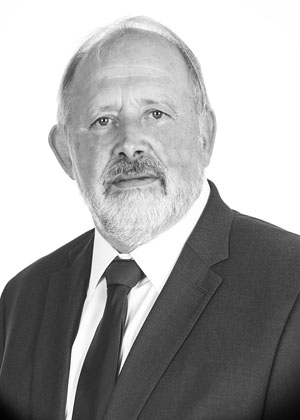
Rudolf (Rudy) Wahl was born in Minden (Germany) and immigrated to Canada in 1988. Initially he was hired as Mechanical Shop Leader at the Dickenson Mine, Balmertown, and subsequently by Barrick Gold Corporation (1989-2008) as a Mechanical Leader and Continuous Improvement Coach at the Williams Mine, Hemlo.
Wahl became an independent prospector in 1989 working in the relatively-unexplored Terrace Bay-Marathon -White River area of Northwestern Ontario.
His work has resulted in the discovery of more than 30 mineral properties with gold, base metal, strategic metals and diamond potential.
His exemplary work ethic has earned him recognition by the Ministry of Northern Development and Mines as one of the most productive prospectors in the Province.
Currently, he is a member of the Thunder Bay Prospectors and Developers Association; the Prospectors and Developers Association of Canada; and is a Director of Tashota Resources Inc.
In 2012, he received the Lifetime Achievement Award from the Northwestern Ontario Prospectors Association (NWOPA) for outstanding work as a Prospector in Northwestern Ontario.
In 2015, Wahl received the NWOPA Bernie Schneider’s Discovery of the Year Award for 2014 for his discovery of a potential high-grade niobium deposit within the Prairie Lake area.
Wahl has cooperated with Lakehead University faculty and students in research on his mineral properties.
Wahl will receive an Honorary Doctor of Science on Saturday, June 3 at 2 pm.
Fellows of the University
Dr. Inderjit Nirdosh
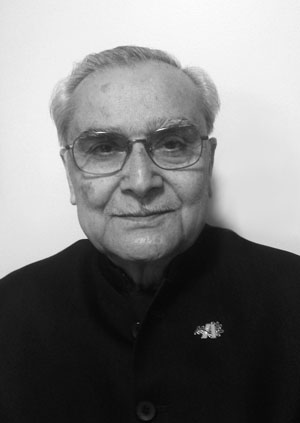
Dr. Inderjit Nirdosh, a Professor Emeritus of Chemical Engineering, came to Thunder Bay in 1981 to work as a faculty member in the School of Engineering at Lakehead University.
Dr. Nirdosh obtained external research funding throughout his career. Notably, he received Lakehead University’s first ever prestigious NSERC Strategic Grant Award in 1985, followed by three more such awards. He has seven patents and has published numerous research articles in various reputable scientific journals.
He has also earned many Merit Awards, was the co-recipient of the inaugural Lakehead University Distinguished Researcher Award (1989), and has been recognized with the Lakehead University Distinguished Instructor Award (1995) and several other prestigious provincial and national teaching awards.
Dr. Nirdosh served as Faculty Advisor for the Lakehead University Student Chapter of the Canadian Society for Chemical Engineering from 1989 until his retirement in 2012, leading the Chapter to numerous top national honours.
He has tirelessly solicited funds to establish several undergraduate and graduate bursaries for Lakehead students. Dr. Nirdosh was honoured with the inaugural Faculty Advisors Award by the Canadian Society for Chemical Engineering in 1999 and was elected to the Fellowship of the Chemical Institute of Canada in 2000.
Outside of his university work, Dr. Nirdosh has promoted the art and cultural forms of India in the wider community through such activities as the Raag-Rung Music Circle, which has brought top-ranked artists to Thunder Bay. These concerts raise funds for causes such as the Northern Cancer Research Foundation and post-secondary student scholarships at Lakehead University and Confederation College.
In addition to his academic and community work, Inder is an accomplished poet and lyricist in the Urdu, Hindi and Panjabi languages of India.
Dr. Nirdosh will be named Fellow of the University on Friday, June 2 at 2 pm.
Dr. James M. Franklin
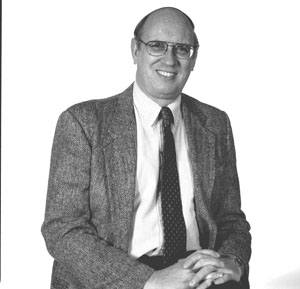
Originally from North Bay, Dr. James Franklin is focused on unravelling the reasons for the exceptional mineral endowment of the Canadian Shield.
He received his PhD from the University of Western Ontario and then joined Lakehead where he was the University’s first economic geology professor from 1969-75.
Dr. Franklin then joined the Geological Survey of Canada (GSC), continuing base metal and gold research throughout the Shield.
In 1981 he took a 10-year excursion to lead the GSC’s Marine Minerals Program, discovering “black smoker” systems on the modern seafloor. From this sea- and land-based work, he developed robust guidelines that helped steer modern exploration. In 1992 he became Chief Scientist for the Geological Survey of Canada.
He has volunteered to teach short courses for Lakehead’s Society of Economic Geologists student chapter, donating his usual fee to the Bernie Schnieders Memorial Award. Dr. Franklin has maintained strong links with the Geology department, acting as a mentor to both faculty and graduate students.
He helped establish the Dr. Melville Bartley CESME Memorial Scholarship in honour of the founding Principal of Lakehead Technical Institute by contributing $25,000 to Lakehead University.
Since “retiring” from the GSC (1998), James advises approximately 70 exploration companies world-wide.
Dr. Franklin is a board member of four companies, and helped develop base metal and chrome resources in the Ring of Fire, Sturgeon Lake, Wyoming and Mexico.
Dr. Franklin is a Fellow of the Royal Society of Canada, an Adjunct Professor at several Ontario Universities, and Past President of the Geological Association of Canada and the Society of Economic Geologists.
He has published over 200 papers and book chapters, and innumerable abstracts. James has a passion to discover more new mines in Northwestern Ontario.
Dr. Franklin will be named Fellow of the University on Saturday, June 3 at 2 pm.
Convocation Schedule
Friday, June 2 – 2 pm
- Faculty of Engineering
- Faculty of Law
- Faculty of Medicine
Saturday, June 3 – 9:30 am
- Faculty of Business Administration
- Faculty of Health & Behavioural Sciences
- Faculty of Natural Resources Management
Saturday, June 3 – 2 pm
- Faculty of Education
- Faculty of Science & Environmental Studies
- Faculty of Social Sciences & Humanities
Graduands are asked to arrive by 1 pm for the afternoon convocation ceremonies and by 8 am for the morning ceremony.
More information on Lakehead University’s convocation ceremonies is available at www.lakeheadu.ca/current-students/graduation
– 30 –
Media: For more information or to arrange interviews, please contact Brandon Walker, Media Relations Officer, at (807) 343-8177, or mediarelations@lakeheadu.ca.
Lakehead University has about 9,700 full-time equivalent students and 2,000 faculty and staff in 10 faculties at two campuses in Orillia and Thunder Bay, Ontario. Lakehead is a fully comprehensive university: home to Ontario’s newest Faculty of Law in 44 years, the Northern Ontario School of Medicine, and faculties of Engineering, Business Administration, Health & Behavioural Sciences, Social Sciences & Humanities, Science & Environmental Studies, Natural Resources Management, Education, and Graduate Studies. In 2016, for the second consecutive year, Re$earch Infosource ranked Lakehead first among Canada’s undergraduate universities. Visit www.lakeheadu.ca.


